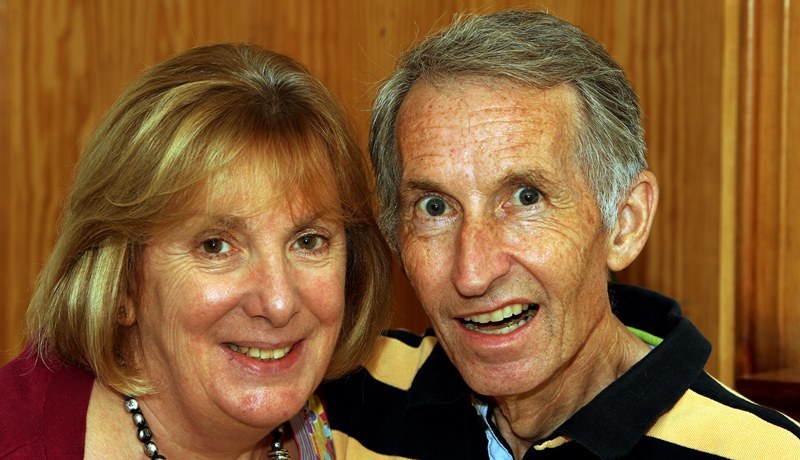A Tayside health boss has given a personal apology to a seriously ill former Dundee fireman who highlighted a catalogue of errors following treatment in Ninewells Hospital.
NHS Tayside’s deputy chief executive Gerry Marr told Alasdair McLeay, who has motor neurone disease (MND), that his care “fell short” of the standards the health authority would expect.
Mr McLeay thanked The Courier for highlighting his case which prompted action. The outcome was “very positive.”
He was admitted to Ninewells last month after his weight dropped over two stones in 13 days.
It transpired that a feeding tube in his stomach was inappropriately placed, causing starvation.
His wife Trudy, a former Ninewells radiographer who took early retirement to care for her husband, was reduced to tears when she called the hospital and was told her husband had a chest infection, a potentially fatal complication for an MND patient.
A nurse laughed when she realised she’d phoned the wrong relative about another patient.
During his stay, ward staff failed to use Mr McLeay’s correct name when addressing him and mislabelled samples being sent for testing.
Mrs McLeay said his treatment was in stark contrast with the excellent care and support she received when she was diagnosed with breast cancer in 2002 and was treated in Ninewells.
The “unfortunate period” during her husband’s admission was “very unlike” anything she had experienced.
Mr Marr and NHS Tayside’s associate director of nursing Eileen McKenna visited the McLeays in their west end home on Tuesday, following an investigation of their complaints.
Mr Marr said, “Having reviewed all of the complaint and looked in to it, I wanted to take the opportunity of personally apologising to Mr McLeay and his wife.
“I am satisfied that we fell short of the standards we would expect in the care that Mr McLeay received while in Ninewells.
“I am also grateful to Mr McLeay and his wife for giving us the opportunity to learn lessons from their experience of care and we are determined we will do that.”
Following the visit, Mrs McLeay said she was in no doubt the apology was “absolutely sincere” and that Mr Marr would take steps to ensure other patients with complex diseases did not have such a negative experience in hospital as her husband.
“Mr Marr has always had the patients’ interest at heart,” she said. “I worked in the health service for many years and know that Mr Marr is one of the outstanding chiefs in healthcare in Scotland.”
